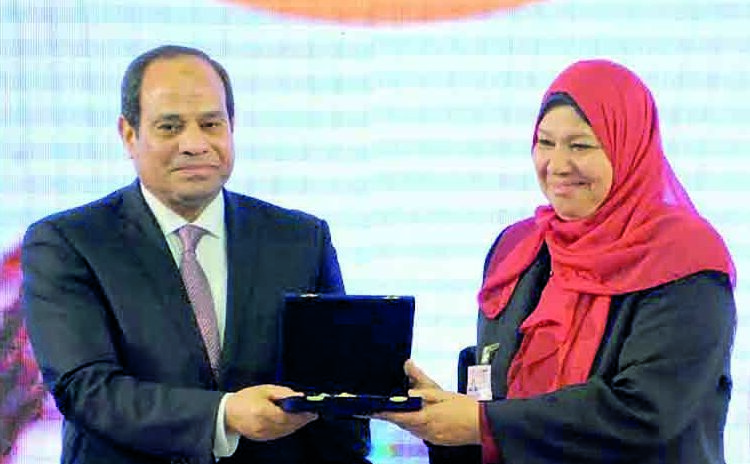Aisha Rateb was an Egyptian lawyer who applied for a seat on the State Council in 1949. Her application was refused because she was a woman, even though she was exercising her constitutional right. The then prime minister Hussein Sirri Pasha said that women judges went against tradition. Rateb sued the government. Her case was the first of its kind in Egypt. She lost.
It was not until 2003 that Tahani el-Gabali became Egypt’s first female judge. Four years later, 30 women took up the judge’s robe. According to the State Information Service (SIS), 66 women serve as judges. However, the State Council and the public prosecution were exclusively male until last month, when President Abdel Fattah El Sisi issued a decree during a meeting with top judicial figures. As of 1 October 2021, women can serve on the State Council and the public prosecution.
The State Council hears administrative disputes and reviews laws and decisions. In March this year, President Sisi, on the occasion of International Women’s Day, instructed Justice Minister Omar Marwan to take action and allow women to join State Council and the public prosecution.
In fact, the State Council did announce its decision on March 14 (eight days after International Women’s Day) to allow women who are already hold positions in the Administrative Prosecution Authority or the State Lawsuits Authority to request a transfer to the State Council as delegates or deputies.
Egypt’s women’s rights activists are jubilant.
Asmaa Ramzy, head of the Women’s Centre for Guidance and Legal Awareness, said, “This is one of the most important decisions in the history of Egyptian women that will contribute to achieving full equality between men and women in all judicial bodies as enshrined in the Egyptian Constitution.”
Article 11 of the 2014 Egyptian Constitution “grants women the right to hold public posts and high management posts in the state, and to appointment in judicial bodies and entities without discrimination.”
Even so, Ramzy told The Egyptian Gazette that many women have resorted to the courts in recent years for flagrant violations of Article 11 by the State Council.
“The council dismissed these cases because, as it said in its 2017 report, it has the freedom to choose candidates for judicial positions and that there is no explicit provision in the Egyptian Constitution obliging the council to appoint women,” Ramzy said.
“But now President Sisi has granted women the opportunity to serve in the judiciary by enforcing the constitutional principle of equal opportunities,” she said.
“This is indeed a victory for Egyptian women.”






Discussion about this post